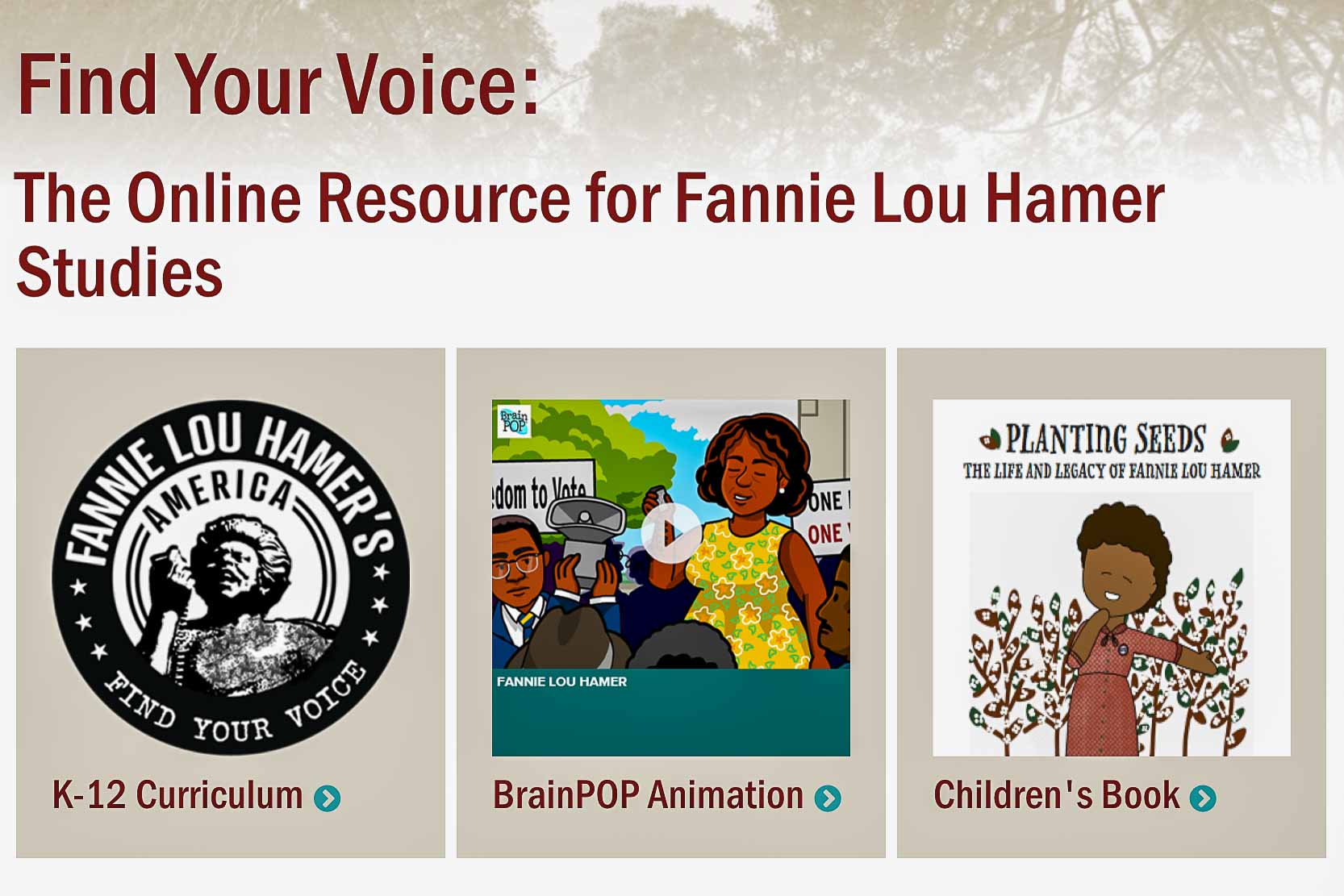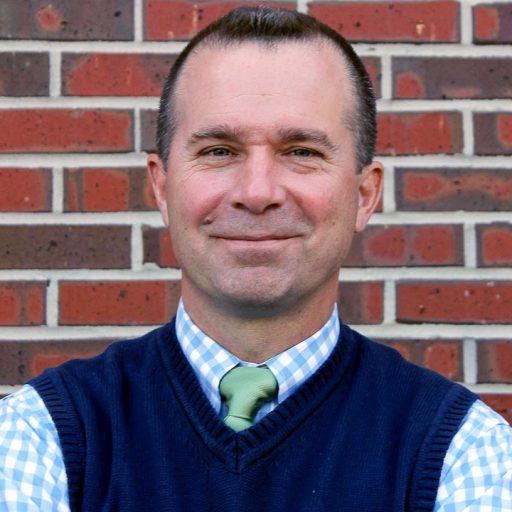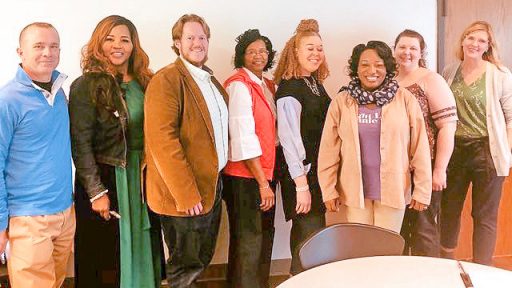
A Florida State University professor’s research has inspired a new K-12 school curriculum about 1960s Mississippi civil rights activist Fannie Lou Hamer.

Davis Houck, FSU’s Fannie Lou Hamer Professor of Rhetorical Studies in the College of Communication and Information, helped develop the educational program about Hamer’s life with assistance from Mississippi schoolteachers, historians and Maegan Parker Brooks, assistant professor at Willamette University in Salem, Oregon.
“The curriculum includes a trove of historical documents that Dr. Brooks and I collected over many years, and we used those resources to create more than 30 lesson plans across all grades,” Houck said. “We worked with Hamer’s great niece Monica Land, the producer on the project, and being able to work with the family was hugely important.”
The curriculum, “Find Your Voice: The Online Resource for Fannie Lou Hamer Studies,” will launch Thursday, Aug. 22, marking the 55th anniversary of Hamer’s famous speech to the Democratic National Convention.
Now, educators across the globe will have a new set of tools to teach students about the civil rights movement and one of its most iconic figures.
The “Find Your Voice: The Online Resource for Fannie Lou Hamer Studies” includes school lesson plans, a new animated short movie by BrainPOP, a children’s book titled “Planting Seeds: The Life and Legacy of Fannie Lou Hamer” and a virtual tour of locations related to Hamer.
A powerfully eloquent proponent of the civil rights movement, Fannie Lou Hamer was known around the world for declaring that she was “sick and tired of being sick and tired.” Having influenced the Voting Rights Act of 1965, Hamer entered politics and frequently fired up supporters with exhilarating songs of faith, courage and heartfelt calls to action.
A Mississippi sharecropper, Hamer was nearly beaten to death in a Winona, Mississippi, jail cell in June 1963 after returning from a voter registration workshop. She described her brutal experience in an emotional speech at the Democratic National Convention in Atlantic City on Aug. 22, 1964. Despite President Lyndon B. Johnson’s personal attempt to silence her, Hamer’s nationally televised impassioned plea for equal rights led to frequent invitations to appear on radio and television broadcasts.
Hamer died on March 14, 1977, at the age of 59 following a lengthy illness and lingering complications from her beating in the jailhouse. She is survived by a daughter.
Although the fight for civil rights and integration was more pronounced and violent in Mississippi than in any other state, the civil rights movement was not a required curriculum there until 2011.
In 2014, the Southern Poverty Law Center reported that half of the 50 states had failed to teach their students adequately, including Mississippi. Educators contend that failure stems from outdated textbooks, as well as erroneous and slanted historical accounts that rarely mention Hamer and other influential activists.
“Not only is social studies a neglected field at all levels of education, it is neglected in its resources,” said Danielle Creel Martin, a former elementary teacher from Yazoo City in the Mississippi Delta. “The Fannie Lou Hamer curriculum has worked hard to fill gaps, provide for teachers’ needs and empower students. Especially here in Mississippi and the South, we now have standards in education that require the teaching of civil rights. And yet, we do not have textbooks or outside resources for important figures like Mrs. Hamer.”
The curriculum has been in the works for 10 years. It is hosted by Willamette University, where Brooks is an assistant professor of civic communication and media and American ethnic studies.
“I am often contacted by K-12 students and teachers, who are eager to learn more about Mrs. Hamer,” Brooks said. “While I enjoy sharing primary source material from her activist career with those who reach out, I wanted to create a more broadly accessible resource that would feature a coherent curriculum based on the archival treasures we’ve gathered over the years.”
The website was designed by Pablo Correa, a visiting assistant professor at Willamette and Florida State Ph.D. graduate. It’s part of a larger multimodal project, Fannie Lou Hamer’s America, that includes an original documentary of the same name. Correa is a videographer on the film; Brooks and Houck are consultants and researchers. The film, told entirely in Hamer’s own voice, is slated for release later this year.
Funded by the W.K. Kellogg Foundation, Mississippi Humanities Council, the Mississippi Delta National Heritage Area and others, the Fannie Lou Hamer’s America project team conducted three free workshops in Hamer’s native Mississippi Delta in 2018 and 2019.

Two workshops recruited local teachers, including Martin, to create and complete the curriculum, along with the Sunflower County Film Academy, a filmmakers’ workshop for high school students. The students’ award-winning short film, “Find Your Voice,” will also be housed on the new website.
“To partner with local Mississippians to bring this curriculum to life is the professional thrill of a lifetime,” Houck said. “Mrs. Hamer believed fundamentally in the power of local people to better their own lives and their own communities. With theseresources, we hear her speak to a new generation of students, teachers and activists.”
Brooks added that partnering with public school teachers in Hamer’s home community to create the curriculum felt like they were carrying forth her spirit.
“Once Hamer was inspired to find her activist voice, she traveled across the nation encouraging audiences to find theirs,” she said. “‘Find Your Voice: The Online Resource for Fannie Lou Hamer Studies’ is our effort to keep Hamer’s legacy alive and inspiring people for generations to come.”
Martin described the development of the curriculum with Houck and Brooks as a joyful, fulfilling experience.
“I went from a sheltered girl who knew so little about civil rights to someone who is now passionate about teaching it because students deserve to have a voice,” Martin said. “I know that is what this curriculum will do. Through the process of writing and creating the curriculum, I learned so much about Fannie Lou Hamer, and it is exciting to give teachers what I have always wanted. Through this curriculum, students won’t just learn about Dr. King’s movement or Rosa Parks’ bravery. They will learn about a real hometown hero who made a difference for her community and sought to meet those needs. Students will be inspired to be like Fannie Lou Hamer.”




